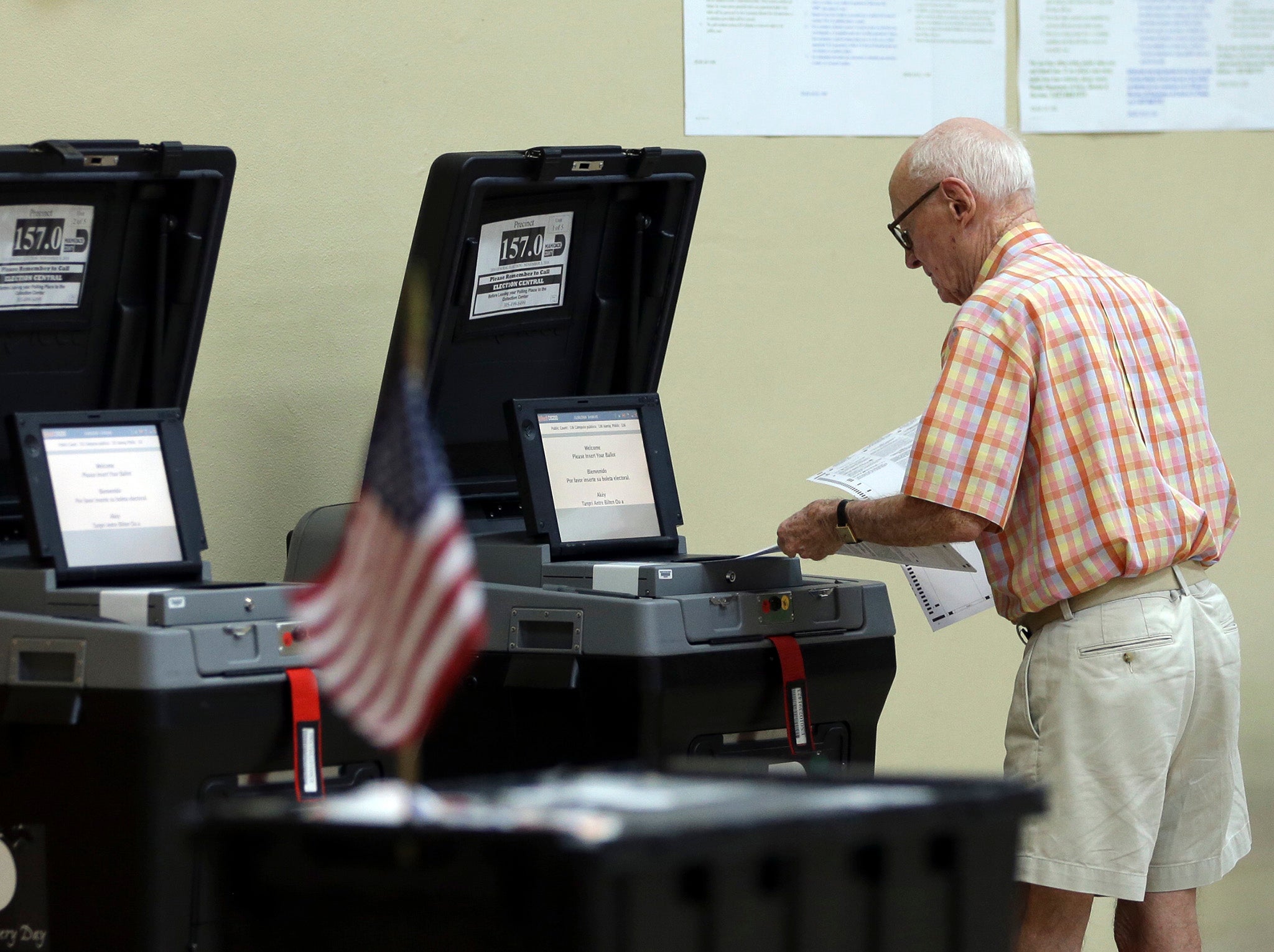US election 2016: What happens if a statewide vote recount is called in Florida
If the margin in Florida is 0.5 per cent or lower- an automatic recount is triggered

Your support helps us to tell the story
From reproductive rights to climate change to Big Tech, The Independent is on the ground when the story is developing. Whether it's investigating the financials of Elon Musk's pro-Trump PAC or producing our latest documentary, 'The A Word', which shines a light on the American women fighting for reproductive rights, we know how important it is to parse out the facts from the messaging.
At such a critical moment in US history, we need reporters on the ground. Your donation allows us to keep sending journalists to speak to both sides of the story.
The Independent is trusted by Americans across the entire political spectrum. And unlike many other quality news outlets, we choose not to lock Americans out of our reporting and analysis with paywalls. We believe quality journalism should be available to everyone, paid for by those who can afford it.
Your support makes all the difference.Florida's 29 electoral votes are essential for Donald Trump's chances of winning the White House.
If he wins the state but the margin is too close, a recount could be on the cards.
Such an event would bring back bitter memories for Democrats after the disastrous outcome of the controversial Florida recount after the 2000 election between Republican George W. Bush and Democrats Al Gore.
The winner of the 2000 election hanged on the result of the recount which dragged on for five weeks.
The US Supreme Court finally settled the issue calling the state in favour of Mr Bush by a margin of 537 votes.
In accordance to Florida electoral law, the margin between Hillary Clinton and Donald Trump must be 0.5 per cent or less for an automatic state recount to be triggered.
If the margin is higher, lawyers representing one or both the campaigns must make a case to the Florida Supreme Court in Tallahassee.
The Democrats have already mobilised lawyers to fight any potential disputed outcome.
Professor Heather Gerken from Yale Law School told The Washington Post: "The Democrats have a standing army. It's a highly professional system.
"The Trump people, as far as I can tell, don’t have that. If you want a recount, you have to have good evidence, you have to have good lawyers, and you have to be prepared in advance.”
If a recount is triggered in 2016, it would not be expected to take as long as in 2000 due to the increased use of electronic voting machines.
As a result, the problems of partially perforated paper ballots known as "hanging chads" would not resurface, according to Constitutional law professor Jonathan Turley from George Washington University.
However, Professor Turley said voter worries about hacking and cyber interference could cause new issues.
He said:"With the hanging chads, there was a physical paper to observe and debate as to its meaning.
"With these electronic systems, you simply don’t have that, so questions about hacking and other types of malfeasance tend to be magnified in the views of many voters
"With all the talk about rigged elections, the new electronic systems are likely to fuel rather than reduce those concerns."
Join our commenting forum
Join thought-provoking conversations, follow other Independent readers and see their replies
Comments